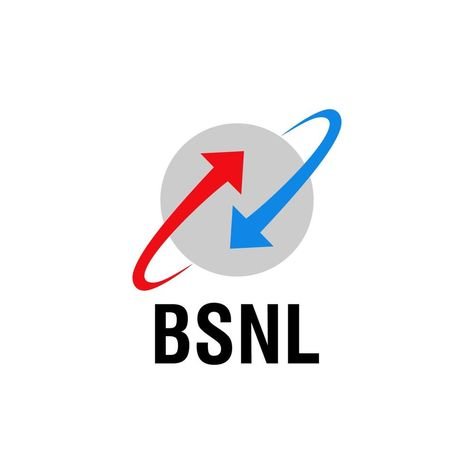The Comptroller and Auditor General (CAG) of India released a damning report on April 1, 2025, exposing significant lapses by state-owned telecom giant Bharat Sanchar Nigam Limited (BSNL). According to the CAG, BSNL failed to bill Reliance Jio Infocomm Ltd (RJIL) for a decade—between May 2014 and March 2024—under their passive infrastructure sharing agreement. This failure caused a massive revenue loss of ₹1,757.56 crore to the government exchequer.
The report also identified additional financial missteps by BSNL, including incorrect license fee calculations and under-billing of infrastructure charges. These oversights resulted in further losses of ₹38.36 crore and ₹29 crore, respectively, taking the total financial impact well beyond ₹1,800 crore.
CAG Holds BSNL Responsible for Contractual Failures
BSNL and Reliance Jio had signed a Master Service Agreement (MSA) to facilitate passive infrastructure sharing. Under this agreement, RJIL gained access to BSNL’s infrastructure—such as towers, shelters, and power supplies—for deploying its own telecom services. As per industry practice, RJIL should have paid BSNL for each technology it deployed using this infrastructure. Instead, BSNL failed to enforce billing for these additional technologies.
The CAG stated, “BSNL failed to enforce the Master Service Agreement with RJIL and did not bill for the additional technology used on BSNL’s shared passive infrastructure.” This failure directly caused a loss of ₹1,757.56 crore over a 10-year period.
CAG officials confirmed that BSNL never raised invoices for several advanced technologies deployed by RJIL, including 4G and later 5G equipment installed on shared infrastructure. Despite the technology upgrades, BSNL stuck to original billing terms without invoking escalation clauses that accounted for inflation or capacity expansion.
License Fee Miscalculations Add to the Damage
The CAG report further revealed that BSNL wrongly calculated the license fee deductions owed to the government. BSNL paid telecom infrastructure providers (TIPs) without deducting the government’s share from the revenue. This lapse caused an additional loss of ₹38.36 crore.
Instead of calculating the license fee on the net revenue, BSNL disbursed payments based on gross receipts from RJIL without appropriate deductions. This mistake directly impacted the government’s rightful earnings under telecom revenue-sharing norms.
The CAG criticized BSNL for ignoring clear regulatory mandates and failing to maintain checks on license fee compliance. “This reflects weak internal governance and lack of financial discipline in BSNL’s dealings with third-party providers,” the CAG report concluded.
Under-Billing on Shared Infrastructure Adds Another ₹29 Crore in Losses
In another major finding, the CAG pointed out that BSNL under-billed Reliance Jio for infrastructure usage. The CAG said, “Non-adherence to the terms and conditions laid down in the MSA with RJIL by BSNL and non-application of the escalation clause resulted in a loss of revenue of ₹29 crore (including GST) towards infrastructure sharing charges.”
RJIL used BSNL’s infrastructure across hundreds of sites. However, BSNL did not apply the annual escalation clause—which allows telecom infrastructure providers to raise usage charges year-over-year by a pre-defined percentage.
By ignoring these adjustments, BSNL effectively provided infrastructure at outdated rates, leading to long-term revenue erosion. The CAG also highlighted that BSNL never re-evaluated site-level usage patterns, even as Jio expanded its operations using shared infrastructure.
BSNL’s Governance and Oversight Failures Under Scrutiny
These findings have triggered serious concerns about BSNL’s operational governance. A decade-long delay in billing a key private player points to internal breakdowns across finance, legal, and operations departments.
BSNL, as a public-sector enterprise, holds a fiduciary responsibility to protect government assets and recover dues in accordance with contractual obligations. By failing to fulfill these basic responsibilities, BSNL compromised not only its financial stability but also the interests of the public exchequer.
The CAG urged the Department of Telecommunications (DoT) to initiate a thorough review of all existing infrastructure sharing contracts. It also recommended disciplinary action against responsible officials and demanded that BSNL immediately recover outstanding dues with interest from RJIL.
Background of BSNL-RJIL Agreement
BSNL signed the Master Service Agreement with Reliance Jio in May 2014, when Jio began building its nationwide telecom network. The agreement allowed Jio to use BSNL’s extensive network of telecom towers and associated facilities. In return, Jio was supposed to pay BSNL fees based on technology usage, power consumption, and space occupied.
Over the years, RJIL expanded its services from 4G to 5G and became India’s largest telecom operator by subscriber base. Despite this rapid expansion, BSNL failed to adjust the billing structure or escalate fees as permitted under the agreement. This failure effectively turned the public sector firm into a low-cost infrastructure provider without any strategic benefit.
Wider Implications for the Telecom Industry
The revelations come at a sensitive time for India’s telecom sector. Government-owned BSNL continues to struggle with losses, market share erosion, and delayed 4G rollouts. In contrast, private players like Jio and Airtel have aggressively expanded across data services, 5G, and digital payments.
This case underscores the urgent need for stronger contract enforcement and oversight mechanisms, especially when public assets are shared with private entities. Failure to monitor compliance and collect dues not only affects BSNL’s books but also reduces the government’s ability to fund essential telecom initiatives.
Industry analysts noted that this development might erode confidence in public-private collaborations unless structural reforms address such accountability gaps.
Reactions from the Government and Industry
So far, neither BSNL nor RJIL has issued a public response to the CAG findings. However, government insiders confirmed that the Department of Telecommunications has called for an internal audit of all infrastructure-sharing contracts, not just those involving Jio.
A senior DoT official said, “We take the CAG’s report seriously. The department will ensure BSNL recovers all dues and holds responsible officers accountable. Public money cannot go unaccounted.”
Experts from the telecom industry believe the case could prompt a broader audit of state-run telecom infrastructure arrangements. Given the increasing reliance on shared infrastructure models, regulators may also introduce stricter monitoring frameworks going forward.
Conclusion: A Wake-Up Call for BSNL and DoT
The CAG’s report serves as a harsh wake-up call for BSNL and the Department of Telecommunications. A ₹1,757.56 crore revenue loss—sustained quietly over a decade—reveals systemic flaws in contract enforcement, billing systems, and executive oversight. Additional losses stemming from license fee miscalculations and under-billing make the total damage even more staggering.
To rebuild credibility and operational integrity, BSNL must revamp its internal audit mechanisms, enhance financial accountability, and pursue aggressive recovery of dues from RJIL. Meanwhile, the government must ensure that similar lapses do not occur in other public-sector agreements. Public assets deserve active management—not neglect.




